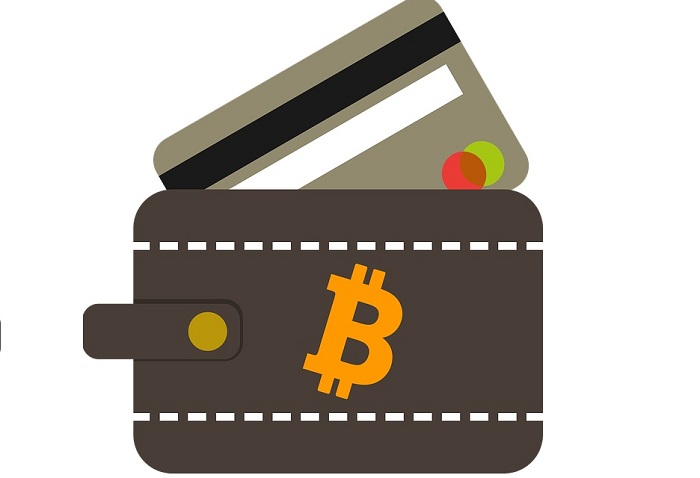A crypto wallet is a software program that stores your digital finances. To trade Bitcoin, a trader needs a digital wallet to start trading successfully. Actually, without a crypto wallet, the whole concept of cryptocurrency may vanish. This article covers various types of wallets and elaborates on how each of them works.

Table of Contents
Mobile Wallets
Generally, mobile wallets are accessible on your mobile phone through an application. For instance, with Apple Pay, you can use mobile wallets when purchasing or shopping in physical stores, while cryptocurrency becomes widely accepted. As mentioned, they operate payments in mercantile establishments through “touch-to-pay” and near field communication (NFC) scanning of a bar code or commonly known as the QR code. Examples of mobile wallets are Bitcoin Wallet andMycelium Bitcoin Wallet. However, be aware that there is significant malware representing Bitcoin wallets. It is, therefore, advisable to research before selecting the wallet to use.
Pros: Additional features like scanning of QR code, conveniently to use.
Cons: Possibility of losing your crypto assets if your phone is damaged or lost, mobile malware, and viruses.
Online Wallet
An online wallet is commonly referred to as a web wallet that allows you to access your digital currencies through the internet. As long as you are connected to the net, you can process your crypto payment transactions. The online wallet stores your private key on their server. So, the selection of your online wallet must be made cautiously. The web wallet service website may send you the crypto code, and then they will save your keys and give you accessibility to them. Coinbase and Blockchain are known web wallet providers. Various services provide different features, with some of them connecting to numerous devices with an internet connection like your computer or mobile.
Pros: Enable rapid transactions, accessible to use for active trading, and can manage several cryptocurrencies.
Cons: Risky for online security due to scams and hacks, the third party is storing your cryptos, not you.
Desktop Wallets
A desktop wallet is an alternative that can be safer than online wallets. This type of wallet is desktop computer-installed and provides the user with total control over the wallet. Desktop wallets serve as an address for the user to send and receive cryptocurrencies. These wallets are exceptionally safe when your computer has never been connected to the internet. If your desktop has never been connected with the net, it substantially becomes a cold wallet.
Pros: Convenient to use for those who trade their cryptos in their computers, private keys are not kept on a third-party server.
Cons: It turns less secure when connected to the net. If you do not back up your device, you lose your assets.
Hardware Wallets
The hardware wallets are potentially one of the safest digital wallets since they store Bitcoins on a physical piece of equipment that is often plugged into a computer via a USB drive. You can still make online transactions, but they are offline most of the time. Therefore, you can consider a cold wallet too. In addition, hardware wallets are assets for virus attacks, and few occurrences of Bitcoin theft have been relayed.
Pros: One of the safest crypto wallet alternatives, suitable for storing large amounts of crypto you do not want to consume on an everyday basis.
Cons: Expensive type of wallet, not user-friendly for beginners or newbies, a must for large crypto amounts.
Paper Wallets
In using a paper wallet, you need to print out your public and private keys. Then, you can send crypto by transferring it to the wallet’s public address, and you can send or withdraw your digital currencies by entering your private keys or by scanning the QR code on the paper wallet.
Pros: Not stored in a specific device and on a third-party server.
Cons: Not user-friendly for non-techy, challenging to use for everyday transactions, can catch physical incidents such as fire.
Special Considerations
Storing securely in your wallet is essential as cryptocurrency wallets are a high-value asset for hackers. Some safeguards cover encrypting digital wallets with a strong password and considering a cold storage alternative, keeping your bitcoins offline. It is also recommended to regularly back up your mobile and desktop wallets since impediments with the wallet software on your mobile phone or computer could lose your holdings.
Conclusion:
To start your trading journey, you must be familiarised with all the types of crypto wallets—research their pros and cons to decide the right wallet that suits your needs. Then, when you encounter problems while carrying out transactions, it is your sole responsibility to critique yourself if you have chosen the right wallet for you.




